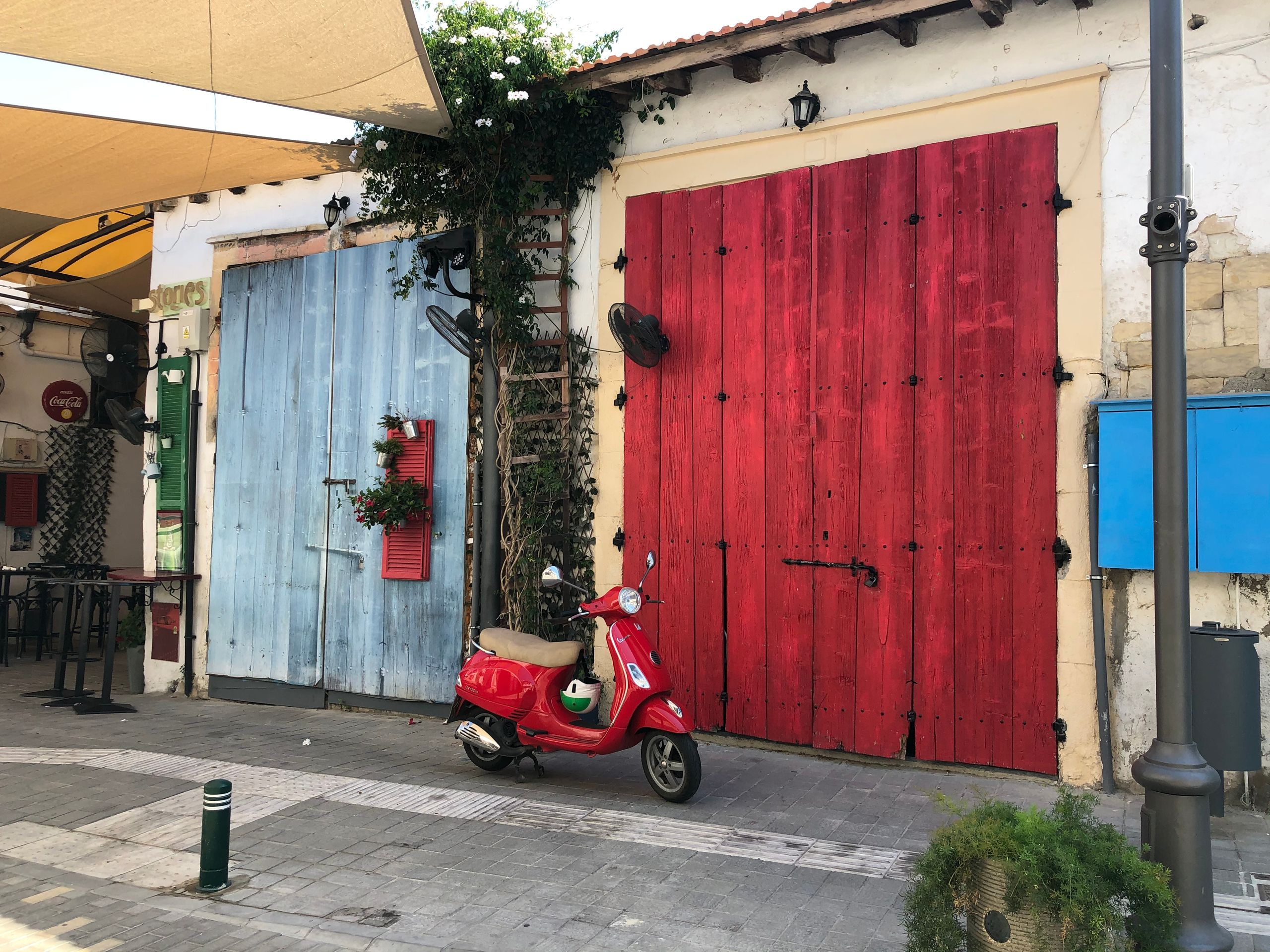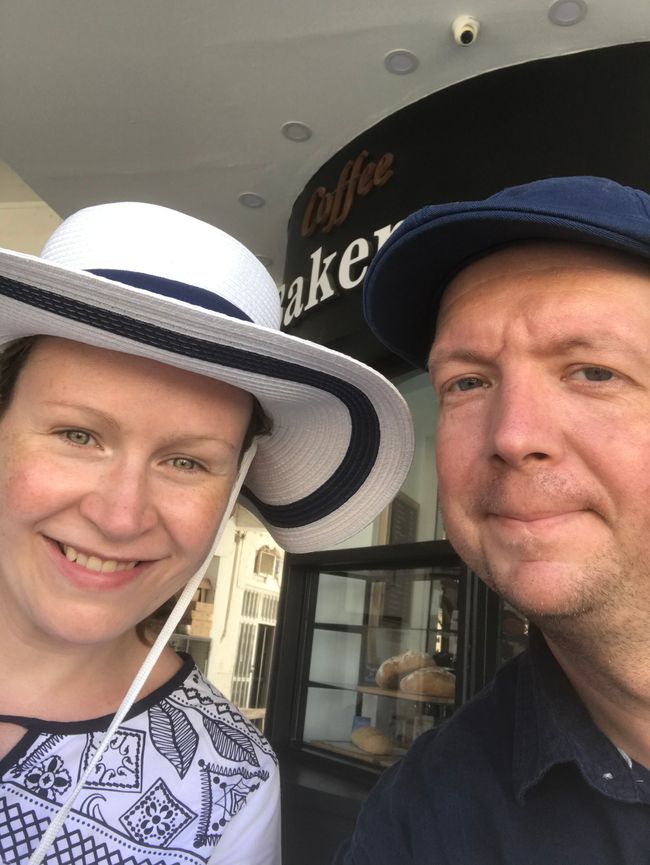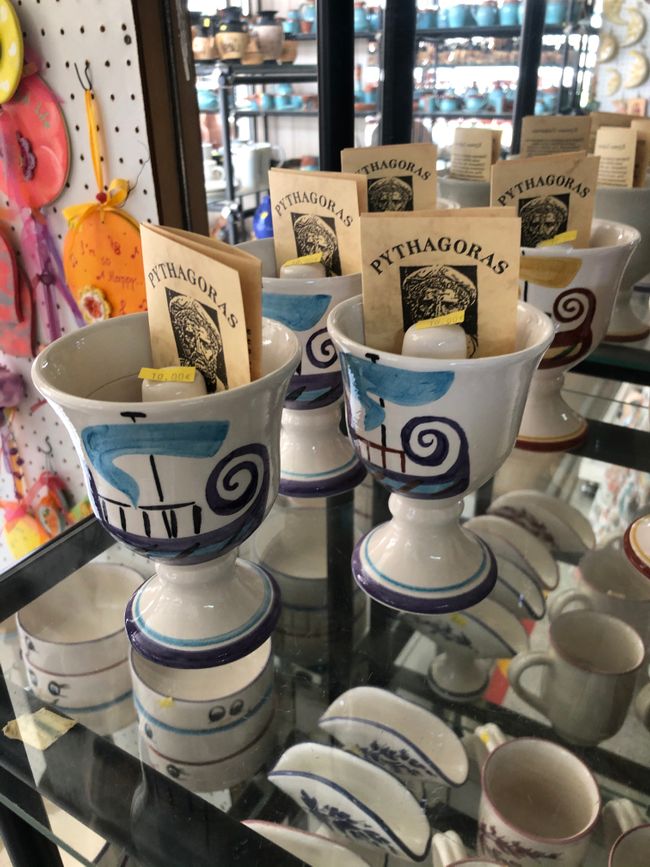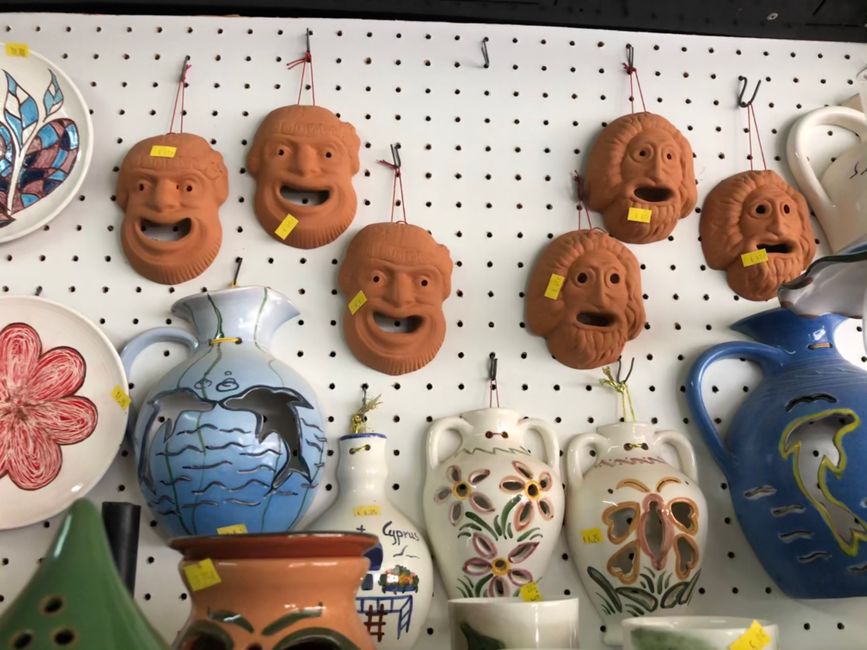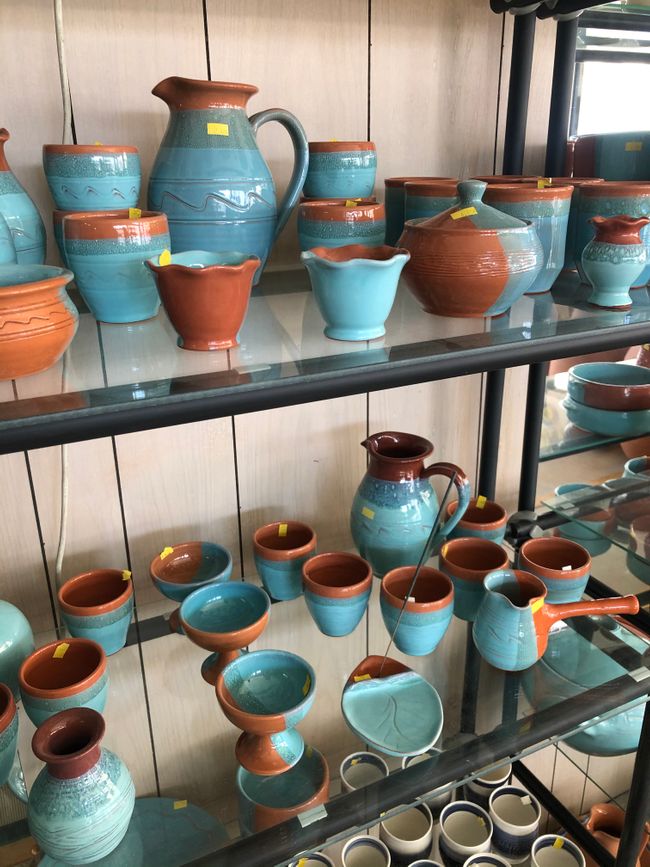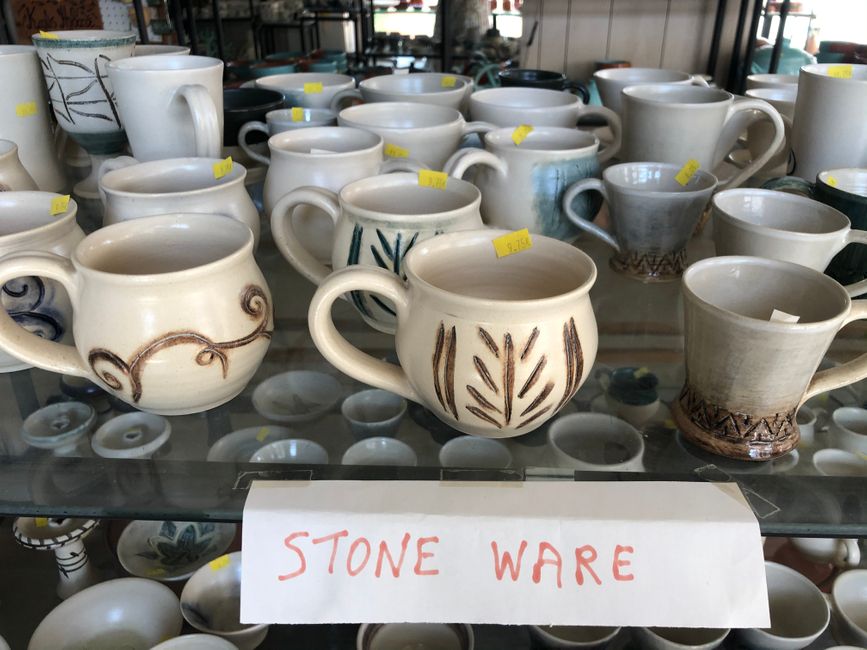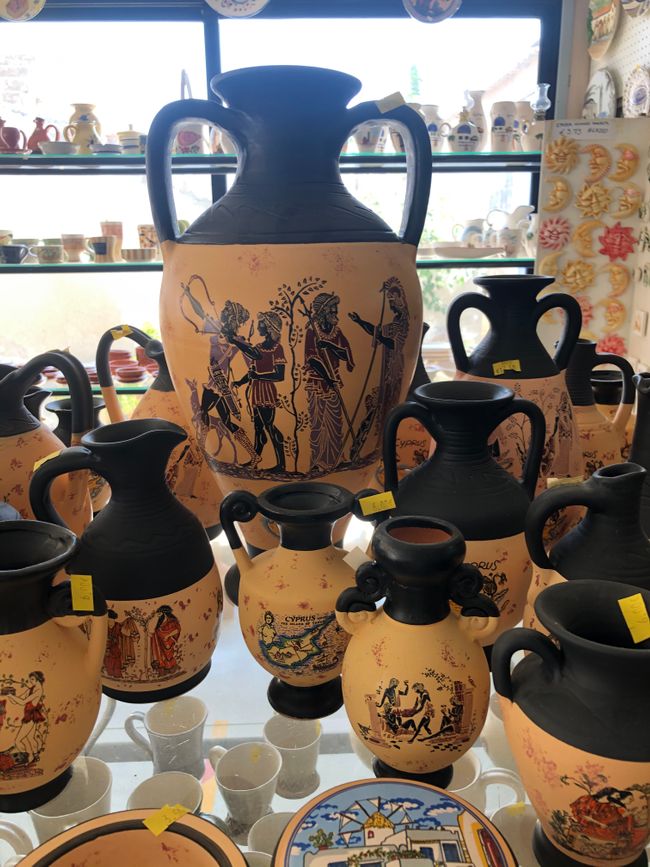Handicraft and Lebanese Cuisine
የታተመ: 18.07.2021
ለጋዜጣ ይመዝገቡ
Recently, we took a little trip to the heart of Larnaca and first visited the Emira Pottery, because we needed wine cups. 😜 We also have wine glasses, but when it's just a small sip of red wine on the couch in the evening, we prefer to use pottery. The fairly large pottery has a small fine sales room, where a large selection of handmade pottery is offered. The traditional Cypriot touch is unmistakable. Much of it could have looked like this in ancient times, but it still fits wonderfully into our time because of the potters' handwriting. The range extends from all kinds of dishes, from plates to olive bowls, oil and vinegar bottles, to replicas of ancient objects, cooking utensils, sacred clay items (incense burners, etc.), to decorations and souvenirs from Cyprus.
After some back and forth, we decided on two beautiful clay goblets that are bright blue glazed in the upper part. We also bought a small incense burner and a very special cup with a long history, named after an ancient Greek, which every student will still be familiar with from mathematics class.
The Beaker of Pythagoras: Pythagoras was born on the island of Samos in the fifth century BC (about 650 km from Cyprus) and was active as a philosopher and mathematician as a Presocratic, which at that time corresponded to a polymath who is simply interested in everything and is about to burst with questions about the functioning of the world. So Mr. P. from S. not only dealt with numbers, but also with sounds and their expressibility in numbers. In this specific context, he probably plucked on a plucked instrument with only one string (monochord) for hours on end and found out that all possible tonal intervals can be formed by means of side divisions. For example, the octave has the ratio 2:1 and can thus be expressed as a simple fraction. Here's how: If you divide a vibrating string exactly in the middle, the two halves vibrate with exactly twice the frequency of the undivided string (Mr. Hertz was of course not yet born and Mr. Pythagoras was completely unknown). Pythagorean tuning then became the standard tuning of instruments in the Middle Ages.
But now finally to the cup you can see above. Like all his contemporaries, our ancient all-rounder was not averse to a good sip of wine and certainly visited many a convivial symposium ('shared, convivial drinking'). 🍷What obviously made him really furious 😡 was when a drinking buddy filled his cup to the brim and his colleagues had to make do with less grape juice. A solution had to be found to discipline and annoy the greedy drinkers, and the 'Beaker of Pythagoras' was invented, with which Mr. P. from S. henceforth educated and annoyed his comrades. The wine cup has a central column and tubes inside as well as a marking for the maximum fill level. If you pour in more than the marking, the entire contents of the cup will flow out of a hole in the bottom. This has something to do with physics, and whoever wants to understand it exactly, should study 'Pascal's law of communicating tubes.' 😉
Since I have now gone into such detail, here is a brief culinary report of our lunch snack at Za'atar, a small Lebanese bakery right in the heart of Larnaca. The menu consists of savory baked goods. We opted for falafel with salad and sauce in a thin flatbread, accompanied by an Ayran. You sit outside under umbrellas with a view of the main church of Larnaca. The food was very delicious (the crunchiest falafel we've ever had) and also very affordable.
ለጋዜጣ ይመዝገቡ
መልስ (1)
Cathleen
Sehr schön ich freue mich immer über neue Sachen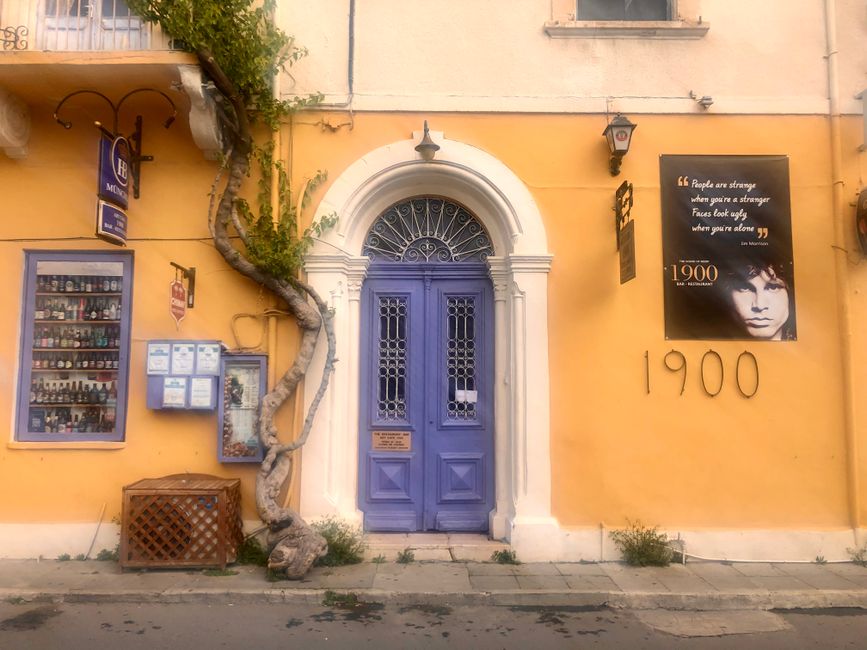
የጉዞ ሪፖርቶች ቆጵሮስ
